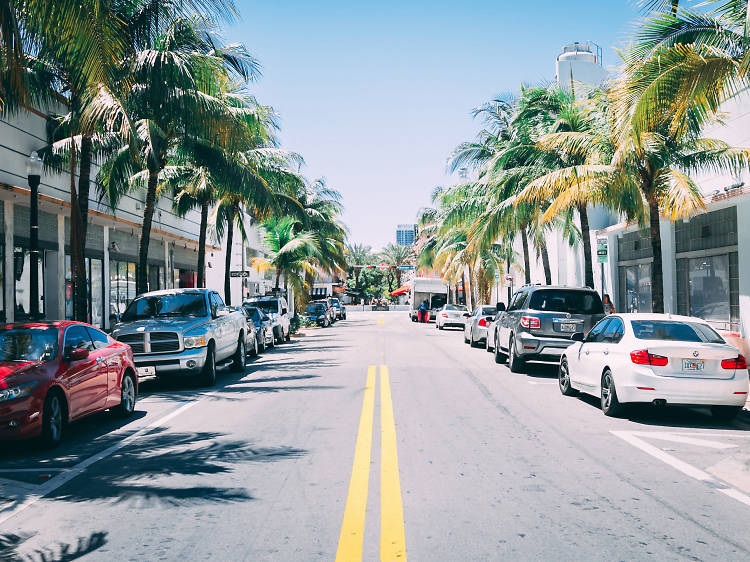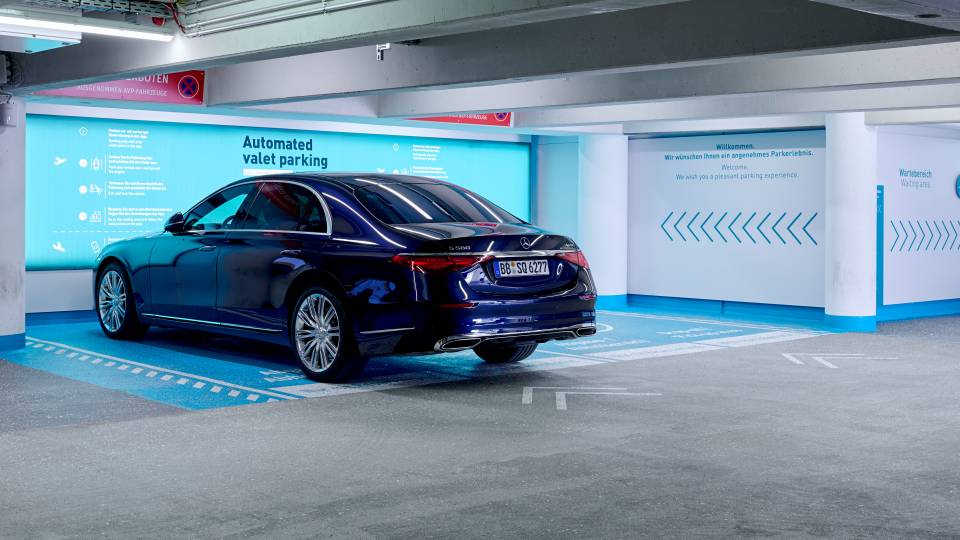- Finding the right parking spot in a bustling city like Miami can be time-consuming and a hassle for Mercedes drivers.
- Here are ways to make your experience smooth and avoid hefty fines for parking offenses along the way.
Miami, a vibrant city known for its beaches, Art Deco architecture, bustling streets, and diverse cultures, can sometimes present a parking challenge due to the high volume of tourists and locals. However, understanding Miami parking rules can make your driving and parking experience smooth and stress-free, avoiding hefty fines or even having your beloved Mercedes-Benz car towed.

On-Street Metered Parking
One of Miami’s most common forms of parking is on-street metered parking. These meters are strategically placed along curbs throughout the city, especially in bustling areas like South Beach and Downtown Miami. Here are some key points to keep in mind:
- Payment: You can pay at the meter using coins or credit/debit cards. Many locations also support mobile payments through apps like PayByPhone.
- Time Limits: Most metered spots have a maximum time limit of 4 hours, which can vary by location. Always check the posted signs for specific regulations.
- Hours of Operation: They typically run from 8 AM to 6 PM, Monday through Saturday. Some areas may have different hours or even free parking on Sundays, so reading the signs carefully is crucial.
Residential Parking Zones
You might encounter residential parking zones if you visit friends or family in Miami. These areas are designated for residents who have obtained a special permit. Non-residents can apply for temporary visitor permits, usually limited to specific time frames. Parking without a valid permit in these zones can lead to fines or towing. It’s best to communicate with your host about where you can park legally.
To make your stay in Miami worthwhile, rent a Bentley Bentayga as an alternative to a Mercedes and cruise around the city in style.

Public Parking Lots and Garages
For those seeking more convenient options, Miami offers several public parking garages, and lots open 24 hours a day. Here are some advantages:
- Convenience: These facilities are often located near major attractions, making them ideal for tourists.
- Pricing: Rates vary by location but range from $1 to $4 per hour. Some garages offer daily maximum rates that can save you money if you plan to park for an extended period.
- Safety: Public garages often have security measures, providing peace of mind while exploring the city.
Disability Parking
Miami is committed to accessibility and has designated parking spots for drivers with disabilities throughout the city. Disability spots are marked with signage and blue paint. To park in these spaces, you must display a valid disability permit issued by your state. Illegally parking in a disabled spot can result in hefty fines and potential towing.
Motorcycle and Scooter Parking
If you’re traveling on two wheels, Miami has dedicated areas for motorcycles and scooters. Look for marked motorcycle parking areas that often have metered spots. It’s also good to know that, just like cars, motorcycles must pay to park in these designated areas.
Parking Violations and Fines
Understanding the consequences of violating Miami street parking rules is crucial to avoiding unnecessary headaches. Common violations include expired meters, parking in residential zones without permits, and blocking driveways. Depending on the violation, fines can range from $20 to over $100. Payment options include online payments, mail-in payments, or in-person payments at designated locations. Vehicles parked illegally may be towed at the owner’s expense. Be aware that towing fees can add up quickly.
Residential Parking Permits
Obtaining a residential parking permit can make life easier for Miami residents. To apply for a permit, residents must provide proof of residency and vehicle registration. These permits allow residents to park without time restrictions in designated residential zones.
Additional Tips for Stress-Free Parking
To enhance your Miami experience and avoid parking-related stress, consider these helpful tips:
- Use Technology: We live in a technologically advancing world. Downloading apps like PayByPhone or ParkMobile will help you manage your parking needs easily from your smartphone.
- Plan Ahead: Research your destination beforehand to identify nearby public parking garages or lots.
- Stay Informed About Events: Check local calendars for events affecting parking availability and rates during your visit.
- Consider Alternative Transportation: If you enjoy Miami’s nightlife or attend events where parking is limited, consider using rideshare services or public transportation.
- Renting Luxury Vehicles: If you’re looking for a unique experience while exploring the city, think about Mercedes Benz car rental. Not only will it elevate your travel experience, but it also makes parking more manageable, as many luxury rentals are equipped with GPS navigation systems that help locate available spots.
- Always Ask for Discounts: One of the best strategies when parking in Miami is to always ask for discounts. Many parking services offer promotions, especially during peak seasons or holidays. For example, some retail shops provide free parking for the first hour or two, a fantastic way to save a few bucks. You might stumble upon even more affordable deals with special discounts during the holiday season. So, don’t hesitate to inquire about any available offers before you park.
- Be Aware of Residential Parking Zones: Miami has a dedicated system of residential parking zones, which is crucial to understand if you want to avoid fines or towing. These zones are specifically reserved for residents and typically require a permit for parking. A handy tip is to look at the windshields of parked cars in the area. If most vehicles display residential parking stickers, you’re likely in a restricted zone. This simple observation can save you from making an expensive mistake.
Best Areas for Parking
When searching for places to park, choosing your locations carefully is wise. Some recommended areas include neighborhoods like Key Biscayne, Brickell, Coral Gables, and Sunset Harbor, which are generally more accommodating regarding parking. These areas often have more available spots and less congestion. On the other hand, if hassle-free parking is your goal, it’s best to steer clear of hotspots like Miami Beach, Coconut Grove, downtown Miami, and Little Havana. These locations tend to have stricter regulations and higher traffic, making it challenging to find a good spot.
By familiarizing yourself with Miami’s diverse parking rules and regulations, you can easily navigate this vibrant city. Whether enjoying the sun at South Beach or exploring the art scene in Wynwood, knowing where to park in Miami will enhance your overall experience.
Remember to stay informed about street parking hours and regulations while embracing the convenience of public lots and garages. With this guide in hand, you’re well-equipped to enjoy all Miami has to offer without any parking-related stress!


























